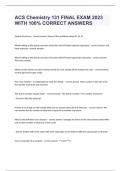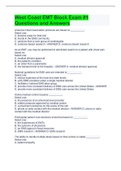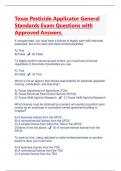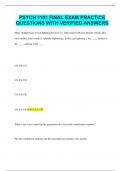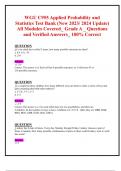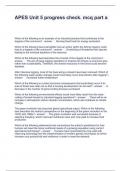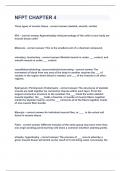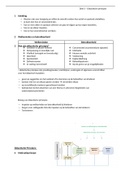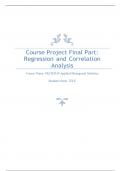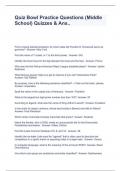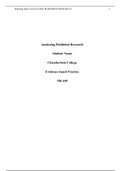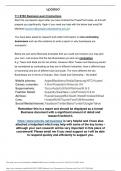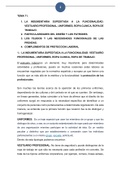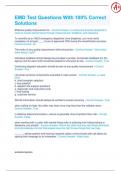Unit 3 2.4 miss johannes
Assess key influences affecting the outcomes of criminal cases
Evidence
Evidence lies at the heart of the process of criminal cases. In reaching their verdict, the jury or
magistrates must take into account all the physical and testimonial evidence of witnesses
presented in court, and only this evidence.
Before a case can go to court, the police or other investigators must first provide enough
evidence to convince the CPS that there is a case for the suspect to answer, and the CPS must
be confident that there is a realistic prospect of a successful prosecution. They must believe that
they are more likely than not to secure a conviction when the case is tried.
Once the case goes to court the prosecution will present evidence and arguments against the
defendant. The defence will challenge the prosecution's case, cross examining the
prosecution's witnesses on their evidence + presenting evidence of their own. By the end of the
trial, the prosecution must have convinced the jury/magistrates that the accused is guilty
‘beyond reasonable doubt’ on all aspects of the charge.
Witnesses
Both parties- defence & prosecution- are entitled to call witnesses to give evidence. Normally,
witnesses must give their evidence in court, in person with two exceptions:
● Where the witness's evidence is agreed by both parties, it can be given in the form of a
written statement.
● Vulnerable or intimidated witnesses may be allowed to give their evidence by a live
video link or video rather than attending court, or from behind a screen in court if they
need to protect their identity.
Witnesses can be called by both sides to give evidence in support of their case, this is known as
the examination-in-chief. E.g the prosecution will call its own witnesses to give evidence by
questioning them. The defence may then choose to cross-examine them by questioning them
on the evidence they have given.
jurors/ magistrates may give whatever weight they choose to the evidence of witnesses. The
quality of a witness’s evidence can determine the outcome of the trial. E.g if they are shown to
have lied, or if their evidence appears inconsistent,unreliable or not credible, this may sway the
verdict one way or the other.
Stereotyping
There is a danger that racial/gender stereotypes held by jurors may influence how willing they
are to believe a witnesses testimony. E.g kaufman et al found that jurors judgement of how
credible they found a rape victims testimony epended strongly on the emotions the victims
showed when giving their testimony, and not the actual content of the evidence. Brodskey et al
found that the jurors' view of the witnesses' knowledge,likeability,, trustworthiness and
confidence were key factors in deciding whether or not to believe their evidence.
, It may therefore be factors e.g a witness's gender,ethnicity,class or age or their appearance,
demeanour,accent or personality affect how much weight juries give to their evidence and
therefore affect the outcome of the case.
Eyewitnesses
Juries are also often ready to believe eyewitnesses, yet their evidence is not always accurate.
E.g the case of frankie carrillo ( wrongfully convicted after the
1991 shooting of donald sarpy after eyewitnesses identified him
as the shooter despite this being the only evidence linking carillo
to the crime. He served 26 years in prison before he was
exonerated by lawyers from the innocence project) studies by
psychologists show that EWT memory can be highly inaccurate.
Similarly the innocence project found that in over 70% of 352
wrongful convictions that were later overturned on the basis of
DNA evidence, eyewitness misidentification helped to convict an
innocent person.
Experts
Expert witnesses are people with specialist knowledge that ordinary members of the public do
not have. Unlike other witnesses who only give evidence of what they know/have observed,
expert witnesses can give an opinion to the court based on their expertise.
In complex cases that rely highly on technical evidence, the testimony given by expert
witnesses can be crucial in determining the
outcome of a case. As ordinary members of the
public(the jurors) are unlikely to have any
specialist knowledge of forensic pathology for
example. They must rely heavily on the accuracy
of the evidence provided by the experts.
One danger is that jurors may automatically
assume the expert is right or misunderstand what
the expert is saying to them. Also some experts
may be better at communicating with lay people
than others.
Misscariage of justice - even if the jury understands what the expert is telling them, they are
probably unable to check its accuracy. This can lead to miscarriages of justice, as in case of
Sally Clark, convicted of murdering her two children based on evidence from expert witnesses.
However in some cases, both defence and prosecution call expert witnesses, who may disagree
on how to interpret the facts of the case. While jurors still try to make sense of their evidence,
this at least allows them to consider alternative technical explanations.
Assess key influences affecting the outcomes of criminal cases
Evidence
Evidence lies at the heart of the process of criminal cases. In reaching their verdict, the jury or
magistrates must take into account all the physical and testimonial evidence of witnesses
presented in court, and only this evidence.
Before a case can go to court, the police or other investigators must first provide enough
evidence to convince the CPS that there is a case for the suspect to answer, and the CPS must
be confident that there is a realistic prospect of a successful prosecution. They must believe that
they are more likely than not to secure a conviction when the case is tried.
Once the case goes to court the prosecution will present evidence and arguments against the
defendant. The defence will challenge the prosecution's case, cross examining the
prosecution's witnesses on their evidence + presenting evidence of their own. By the end of the
trial, the prosecution must have convinced the jury/magistrates that the accused is guilty
‘beyond reasonable doubt’ on all aspects of the charge.
Witnesses
Both parties- defence & prosecution- are entitled to call witnesses to give evidence. Normally,
witnesses must give their evidence in court, in person with two exceptions:
● Where the witness's evidence is agreed by both parties, it can be given in the form of a
written statement.
● Vulnerable or intimidated witnesses may be allowed to give their evidence by a live
video link or video rather than attending court, or from behind a screen in court if they
need to protect their identity.
Witnesses can be called by both sides to give evidence in support of their case, this is known as
the examination-in-chief. E.g the prosecution will call its own witnesses to give evidence by
questioning them. The defence may then choose to cross-examine them by questioning them
on the evidence they have given.
jurors/ magistrates may give whatever weight they choose to the evidence of witnesses. The
quality of a witness’s evidence can determine the outcome of the trial. E.g if they are shown to
have lied, or if their evidence appears inconsistent,unreliable or not credible, this may sway the
verdict one way or the other.
Stereotyping
There is a danger that racial/gender stereotypes held by jurors may influence how willing they
are to believe a witnesses testimony. E.g kaufman et al found that jurors judgement of how
credible they found a rape victims testimony epended strongly on the emotions the victims
showed when giving their testimony, and not the actual content of the evidence. Brodskey et al
found that the jurors' view of the witnesses' knowledge,likeability,, trustworthiness and
confidence were key factors in deciding whether or not to believe their evidence.
, It may therefore be factors e.g a witness's gender,ethnicity,class or age or their appearance,
demeanour,accent or personality affect how much weight juries give to their evidence and
therefore affect the outcome of the case.
Eyewitnesses
Juries are also often ready to believe eyewitnesses, yet their evidence is not always accurate.
E.g the case of frankie carrillo ( wrongfully convicted after the
1991 shooting of donald sarpy after eyewitnesses identified him
as the shooter despite this being the only evidence linking carillo
to the crime. He served 26 years in prison before he was
exonerated by lawyers from the innocence project) studies by
psychologists show that EWT memory can be highly inaccurate.
Similarly the innocence project found that in over 70% of 352
wrongful convictions that were later overturned on the basis of
DNA evidence, eyewitness misidentification helped to convict an
innocent person.
Experts
Expert witnesses are people with specialist knowledge that ordinary members of the public do
not have. Unlike other witnesses who only give evidence of what they know/have observed,
expert witnesses can give an opinion to the court based on their expertise.
In complex cases that rely highly on technical evidence, the testimony given by expert
witnesses can be crucial in determining the
outcome of a case. As ordinary members of the
public(the jurors) are unlikely to have any
specialist knowledge of forensic pathology for
example. They must rely heavily on the accuracy
of the evidence provided by the experts.
One danger is that jurors may automatically
assume the expert is right or misunderstand what
the expert is saying to them. Also some experts
may be better at communicating with lay people
than others.
Misscariage of justice - even if the jury understands what the expert is telling them, they are
probably unable to check its accuracy. This can lead to miscarriages of justice, as in case of
Sally Clark, convicted of murdering her two children based on evidence from expert witnesses.
However in some cases, both defence and prosecution call expert witnesses, who may disagree
on how to interpret the facts of the case. While jurors still try to make sense of their evidence,
this at least allows them to consider alternative technical explanations.





